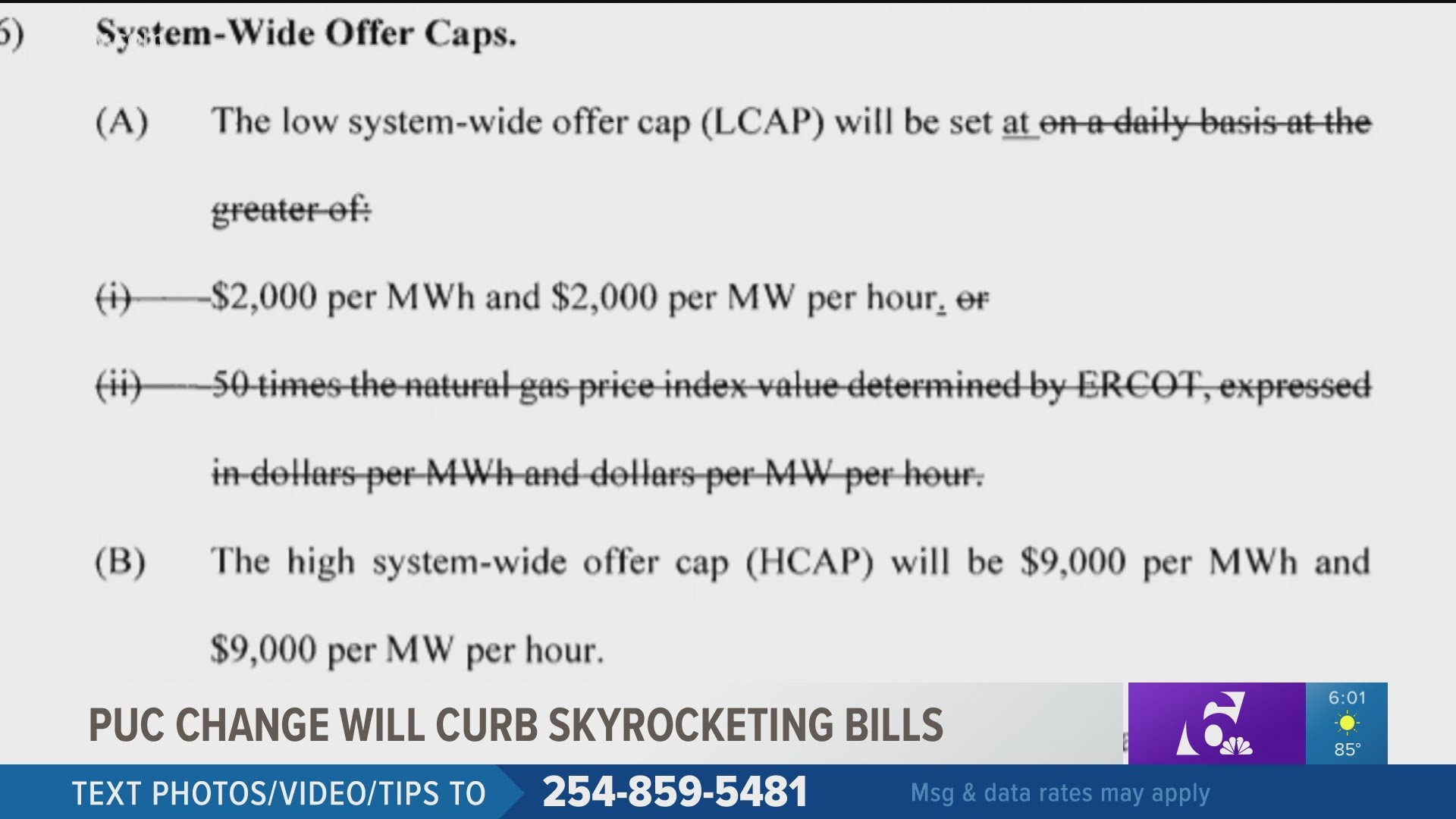TEXAS, USA — Power prices in Texas skyrocketed to $9,000 per MWh for four days during Winter Storm Uri. As a result, power companies declared bankruptcy, people with variable rate plans saw their bills max out and those who bought power at wholesale prices saw bills in the thousands.
Why didn't Texas have rules to keep this from happening? Actually they did, but the rules were flawed. Now the state is fixing them.
As state power prices rise to meet demand, they can go as far as the established high system-wide offer cap (HCAP) of $9,000 per MWh. They cannot, however, stay their indefinitely.
According to Texas Public Utility Commission (PUC) Spokesman Spokesman Andrew Barlow, the price may only stay there until a certain threshold of total electricity cost has been reached. At that point, the system is supposed to drop to the Low System-Wide Offer Cap (LCAP) which stays in place for the rest of the year. But in February, things didn't turn out that way because LCAP is tied to the price index of natural gas.
"Normally the market would have gone to that lower cap: $2,000 MWh or 50 times price index value (of natural gas) and that cap remains in place for the rest of the year," Barlow said. "But because fuel prices were so high, going to fifty times the fuel index price would have actually pushed the price much, much higher than the nine thousand dollar cap."
According to state rules the price goes to $2,000 per MWh or 50 times the natural gas price index value determined by ERCOT, expressed in dollars per MWh and dollars per MW per hour. The problem is, the cap is set to the greater of the two instead of the lesser. During the winter storm, fuel prices skyrocketed to $348 per unit and Barlow said power prices could have gone up to $17,000 MWh. The PUC then ordered ERCOT not to use the LCAP rules in order to keep prices from going even higher.
While the Texas legislature is working on new legislation to make sure the low price cap doesn't go higher than the high price cap, the Public Utility Commission is now on that same page.
On Thursday, the PUC approved a proposal for publication in the Texas register that would eliminate the portion of rules with the natural gas index altogether. As a result, the LCAP would simply be $2,000 per MWh, and would stay that way for the rest of the year, regardless of the cost of natural gas.
PUC discussed the issue briefly in a May 6 meeting and mentioned the issue of tying the cap the gas prices. The broader issue of having prices potentially soar to $17,000 MWh during the storm and the failure of the current policy to bring prices down were not explicitly mentioned.
"We need to be able to provide certainty to the market when we can," Commissioner Will McAdams said. "I believe we are setting a lower cap for this year, cleaning up the disruptive force of the fuel recovery factor."
PUC spokesman Barlow further clarified the intent of the HCAP and LCAP for 6 News Thursday afternoon, explaining that the market was only supposed to be at the HCAP level of $9000 MWh for a short time and was then supposed to be capped at a lower price for the rest of the calendar year.
"The reason the cap exists is, once you go though an episode like that, to let the market know that that was their one shot and the rest of the year it will stay below $2,000," Barlow said.
The PUC will now allow for comments on the rule change and will vote on the measure in June. If the new rules go into effect, they will help protect Texans from seeing variable rate electricity prices like the prices seen during the winter storm.
Also on KCENTV.com:

